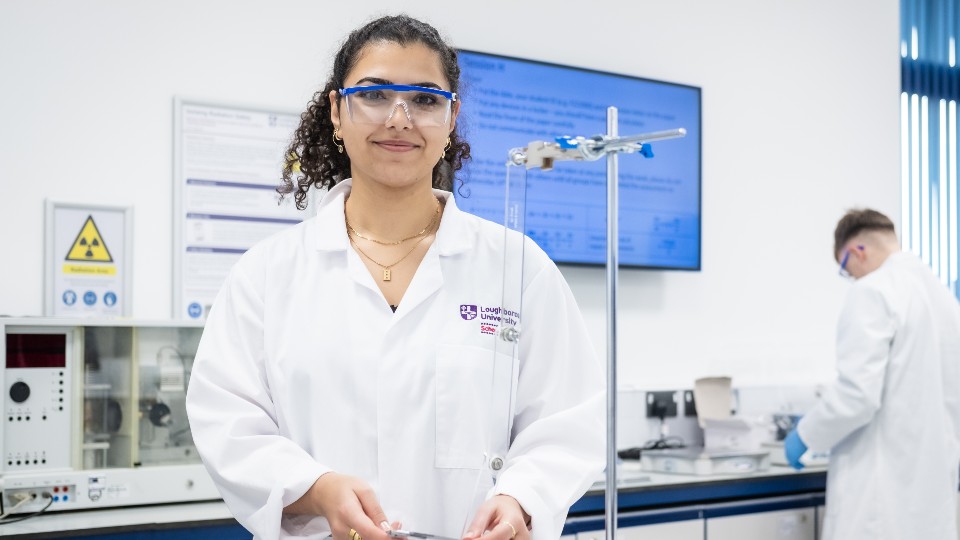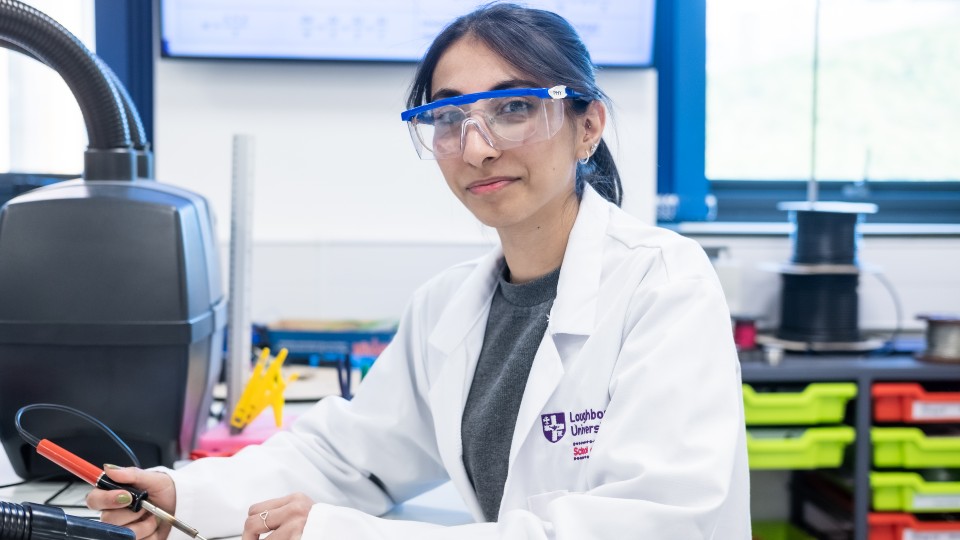Industry projects
In their final year, all students have the opportunity of conducting an industry-based group project, building their collaborative working skills while applying what they have learnt to address real industry problems.
Our students have been able to work with a number of organisations to tackle real-world challenges in an industry setting. It gives Loughborough physics students the chance to apply their knowledge, as well as further developing the skills that employers look for - such as project management, critical thinking, team working, presentation, and problem-solving.
Our students have received excellent feedback for their industry projects. Here are some examples:
NLA Blue
Seabed man-made object detection system
Students were assigned to use physics-based modelling and analysis to develop a technique to algorithmically recognise man-made seabed objects from acoustic datasets with the aim of significantly improving the probability and speed of determining man-made objects from natural geological and benthic feautres.
The project addresses a real problem with significant commercial relevant across blue economy sectors including maritime security and defence (notably mine/unexploded ordnance detection), offshore renewables (environmental impact assessment, seabed preparation for infrastructure and cabling), subsea telecoms (98% of global communications are transmitted undersea), aquaculture, hazardous wreck surveys (many wartime wrecks contain environmentally hazardous cargoes), search and rescue for missing submarines, and shipping, port and harbour operations.
Nick Lambert, co-founder and Director of NLA International Ltd. had this to say about his experience of working with our students:
"My background is maritime operations; I’m not a scientist or a physicist but I know that scientists and especially physicists solve hard problems. My business is understanding the end user issues and needs in the blue economy, the marine and maritime sectors and particularly where they interface with the natural resource of our seas and oceans. These are challenging, remote environments, poorly connected, sparse in data and increasingly vital to our understanding and solution of climate change; the resultant problems are most definitely hard. Loughborough Physics Department emphasises depth, rigour, and employability with a practice and challenge-based learning approach to ensure that students’ understanding of physics is consistently applied to real-world open-ended problems, providing translatable skills necessary to tackle the advanced problems found in research and industry. From the outset Loughborough physics students are trained to do this in a real-world environment - from the skills central to physics (critical thinking, complex problem-solving, and ideation) to systems methods (requirements analysis and reliability engineering), to small-group working and leadership. They work on industry-led group projects as part of their degrees, readying them for their future careers. The NLA International team has therefore very much enjoyed working with them and wish them all the very best of luck with those careers; hopefully some will be in the blue economy!"
IBM
Augmented Reality and Artificial Intelligence
Students were asked to demonstrate how two convergent technologies, Augmented Reality and Artificial Intelligence can be used to demonstrate a sophisticated physics concept in a visually striking and engaging way. This showcase would have use as a physics-focused learning tool – but also will demonstrate skills and technologies that are readily transferred to industries such as the auto industry, retail, engineering etc to demonstrate their own showcases of concepts.
About the project, John McNamara (IBM Master Inventor, Professor, Visiting Research Fellow, Speaker and IBM UK University Programs Lead) commented:
"May I say what an exceptional effort the project was. It exceeded all expectations, and has the potential to make a real difference in the lives of many people. I wanted to recognise the dedication, skill, hard work that went into this project. All the way from its exemplary design, requirements gathering, project planning and execution - to deliver a super implementation. Well done!"
BEIS Technical Energy Specialist team
Transmitting renewable electricity
For this project our students working with the UK Government's Department for Business, Energy and Industrial Strategy (BEIS) Technical Energy Specialist team. They were asked to look at the physics of designing a high frequency radio system capable of transmitting megawatts of renewable electricity across kilometre distances through the air. The ability to transfer large amounts of power between two sites without using a cable would be transformative in the energy sector with one area of immediate use being offshore wind generation where currently turbines are connected to the shore and into the grid by cables.
Head of Energy Engineering, BEIS, Ian Llewellyn had this to say:
"Working with students at Loughborough University to study new concepts in low carbon energy enables us in BEIS to interact with the next generation of scientists that will be critical in meeting net zero carbon emissions by 2050. It enables us to work with keen and enthusiastic students to present scientific challenges in achieving net zero, and allows the students, working in groups, to develop their physics skills in delivering possible solutions. Altogether, we think engagement with this programme has been beneficial for both ourselves and the students."

